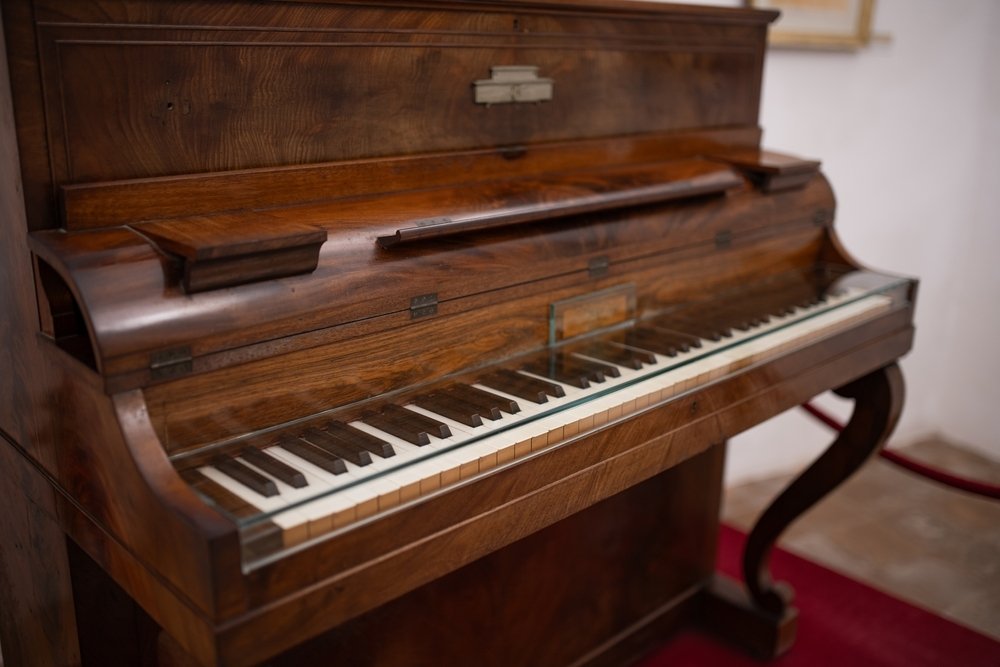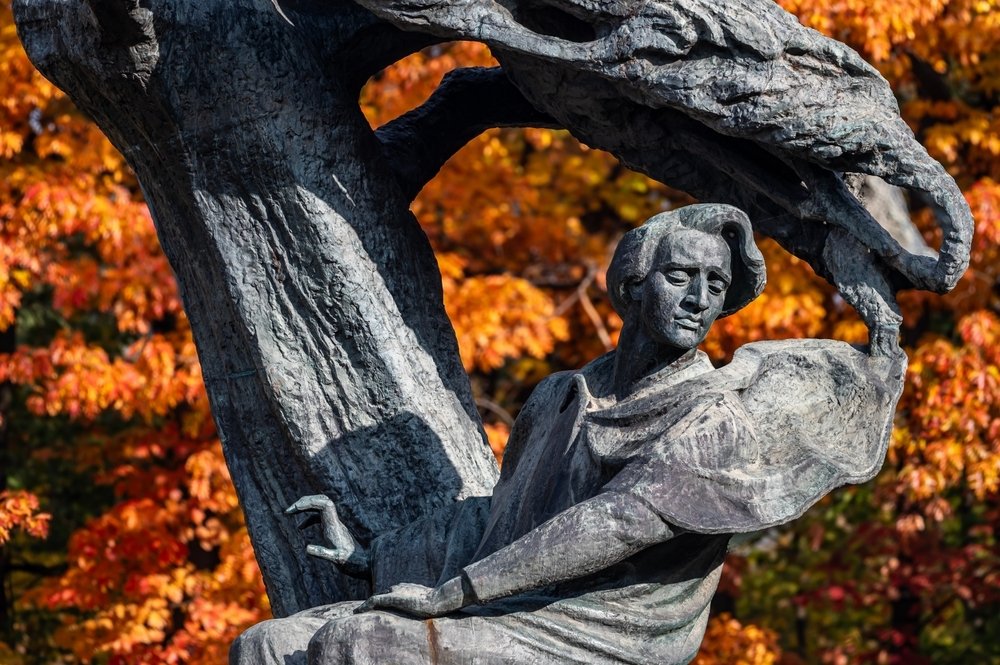© Turkuvaz Haberleşme ve Yayıncılık 2025
Some stories cling to you not for their drama, but for their quiet defiance. They whisper. They linger. They plant themselves like seeds in the folds of your memory and wait. For me, the story of Frederic Chopin’s heart is one of them.
Chopin is remembered as one of the most gifted composers in music history. But ask those who truly listen – and they won’t speak first of his fame. They’ll talk about the feeling and the quiet bravery of his music. They’ll speak of how a single nocturne of his sounds like it’s remembering a home that no longer exists, how even his most elegant compositions seem to tremble with a longing they cannot name. And then, for those who know the story, will speak of his heart, which is literally sealed in stone as an organ, across the continent from where his body lies. No other artist’s legacy has ever felt so heartbreaking.
Chopin was born in 1810, near Warsaw, into a Poland that was already being erased from the map by imperial powers. He was a prodigy – by seven, he was composing, by eight, he was performing for royalty and by 20, he was the pride of the Polish musical world.
But Poland, fractured by the partitioning forces of Russia, Prussia and Austria, was no longer truly free. And like so many sensitive spirits of his time, Chopin felt the walls of history closing in. In 1830, at just 20, he left Poland, intending only a short stay abroad and never returned.

That decision – forced by political reality – became a wound he never stopped tending. He lived in Vienna, then settled in Paris, where he became the darling of artistic salons, befriending greats like Liszt, Delacroix and George Sand. And yet, even as he built a brilliant life in the West, his music remained anchored in the East.
His mazurkas and polonaises (traditional Polish forms) were never just dance pieces. They were acts of cultural preservation, performed with the urgency of someone trying to keep a disappearing country alive, note by note. His music became a second homeland, the one no army could burn.
Chopin’s genius was not in spectacle. He was not a showman like Liszt, nor a revolutionary like Beethoven. He whispered what others screamed. He wrote for the intimate moment – the sigh before sleep, the tear behind the eye. Most of his works were for solo piano. In fact, he revolutionized what the piano could feel like. It no longer thundered – it breathed. In his hands, it wept, remembered and sometimes prayed.
If there is one piece that captures this ache – this sublime, trembling ache – it is his "Nocturne in C-sharp minor, Op. Posth." It was composed early, but not published until after his death. It rises like a lullaby, then falls like a farewell. It is not perfect. But it is human. You don’t listen to it; you listen with it. Chopin didn’t just write music. He wrote about how it feels to be unable to go home.
He was always delicate. Prone to illness. Frequently in emotional turmoil. But his sensitivity wasn’t a defect; it was his compass. It allowed him to hear what others ignored and to transform solitude into sonata, grief into grace.
That sensitivity, though, came at a price; He died young, at 39, in his apartment in Paris, far from the birch trees and folk songs of his youth. But before he died, he made one extraordinary request: that his heart be removed and returned to Poland.
He didn’t want fame. He didn’t ask for statues. Yet, he asked for an extraordinary wish: He wanted his heart to be returned to his homeland.

And so, his sister Ludwika honored his wish. She removed the heart organ from the body, sealed it in a jar of cognac to preserve it and smuggled it through Europe to Warsaw – a city still struggling for freedom. The heart was entombed inside a pillar in Holy Cross Church, hidden from the world, but not forgotten. Even the Nazis, who stole countless lives and artifacts, treated Chopin’s heart as sacred. They removed it during the occupation, but returned it, intact, after the war. It remains there still, open to visitors today.
A little plaque on the stone reads:
“Here rests the heart of Frederic Chopin.”
And yet – his body lies in Pere Lachaise in Paris. Divided in death, as he was in life.
There is something unspeakably human in this. In our lifetimes, we are pulled in so many directions.
Artists especially – we live in exile, even if we never leave. Exile from belonging. From certainty. From home. And so, like Chopin, we make art. We send parts of ourselves into the world – on canvas, in sound, in memory – hoping some part of us will find its way back.
Chopin’s music lives on not because it dazzled, but because it confided. He let us in. He wasn’t trying to impress us. He was trying to speak, gently, across time. And that’s why people love him still.
Because in a loud and often brutal world, Chopin reminds us that the tender voice matters. That beauty can resist quietly. That a heart – both metaphorical and literal – can find its way home.
And perhaps that is the role of the artist. To let the heart travel where the body cannot. To create something so true that it survives us. To insist, even in exile: "I still belong somewhere where my heart is."
It’s hard to imagine a more poetic act of resistance. Not through politics, nor through war. But through a heart that refused exile.
Artists are often considered delicate, too soft for the real world. But Chopin’s story reminds me that true sensitivity is not weakness; it’s a form of clarity. The artist sees the invisible lines – between nations, between longing and belonging, between love and legacy – and names them with music, with brushstrokes, with language.
Chopin did not need to shout to express his patriotism. He composed it. He whispered it into nocturnes and preludes. And in the end, he sent it home in the only way he could: heart first.
What is this, if not a search for immortality? Not the immortality of monuments or medals, but the kind that lives in symbols. His heart in Warsaw is no longer flesh – it’s a relic, a gesture, a defiance or maybe a piece of art.
Chopin’s sensitivity is like the common story of artists and reflects their deepest concern.
They exhibit, dance and sing in cities where they don’t speak the language. They send pieces of themselves into the world, hoping those pieces will outlive them, hoping someone, somewhere, will recognize the rhythm of their inner life and say: "This belonged to someone somewhere who felt deeply."
So next time you hear one of his nocturnes, listen carefully. You will not only hear Chopin’s mesmerizing notes but also his heart’s beats.
